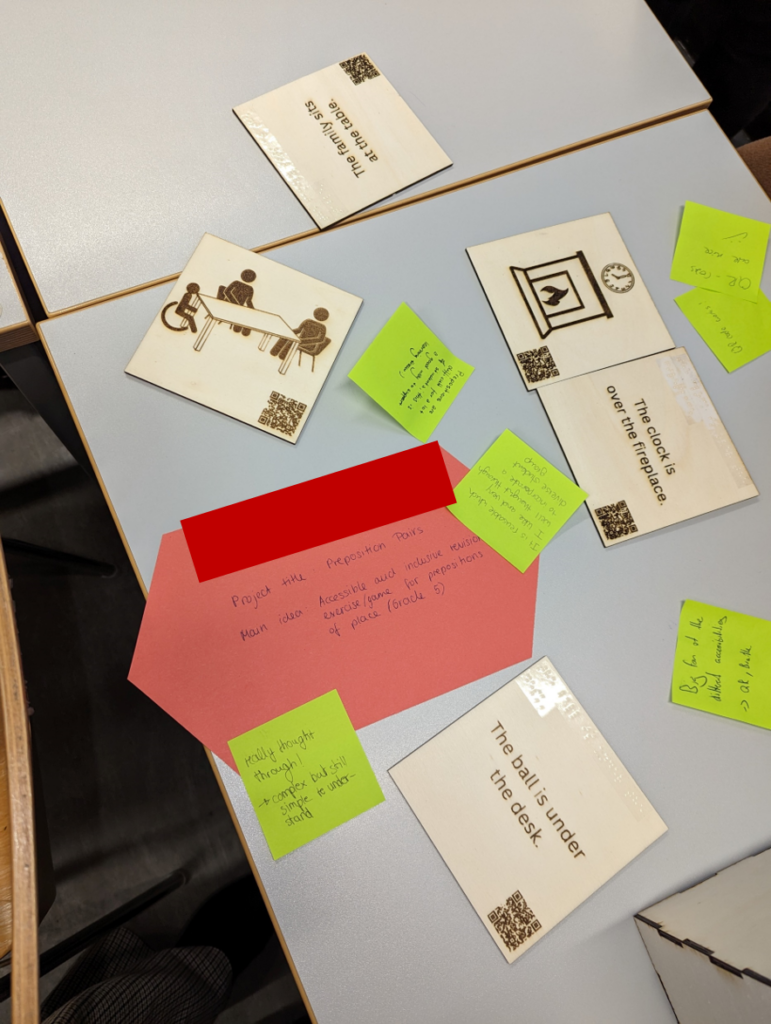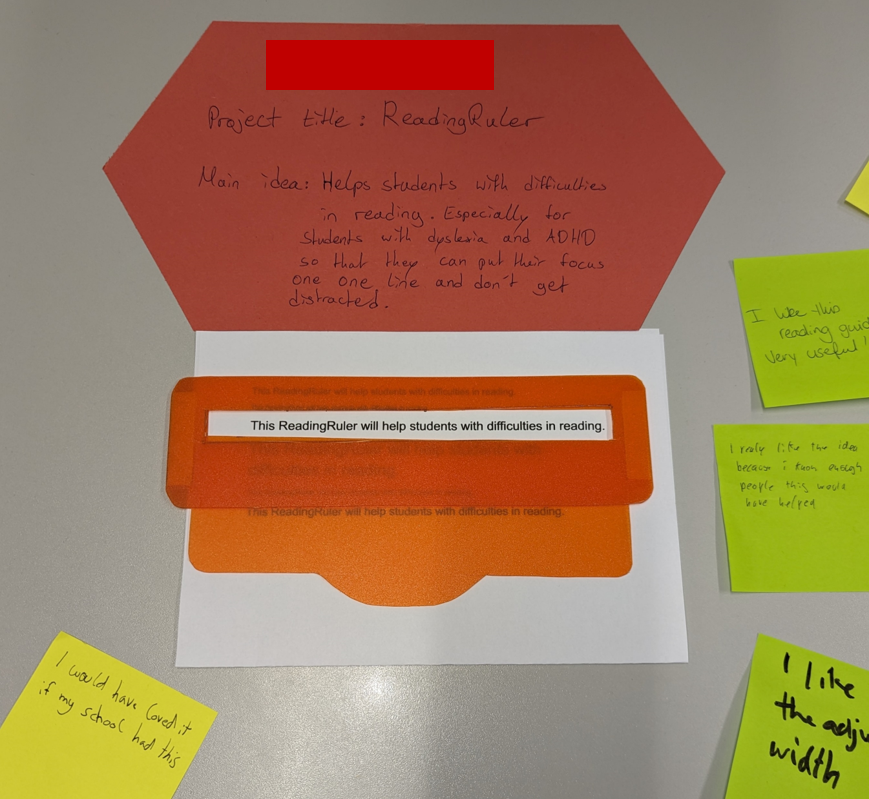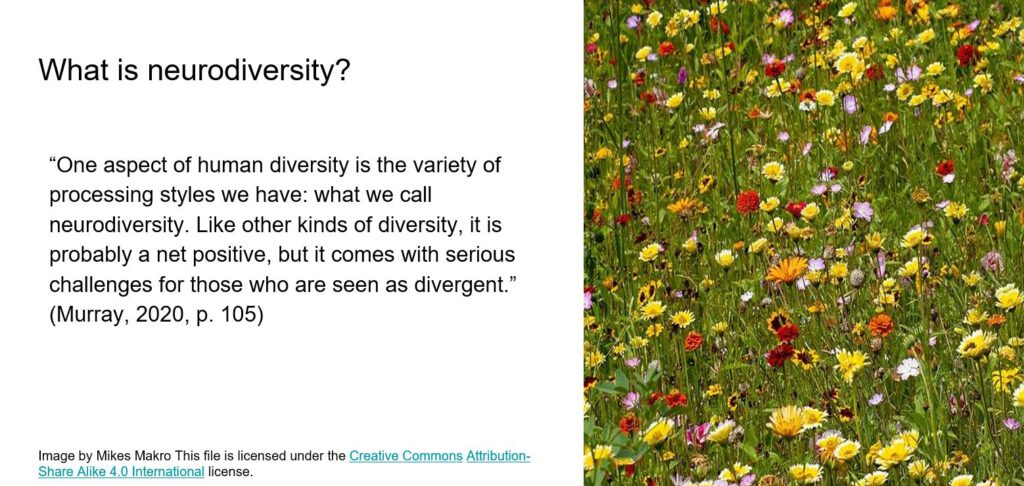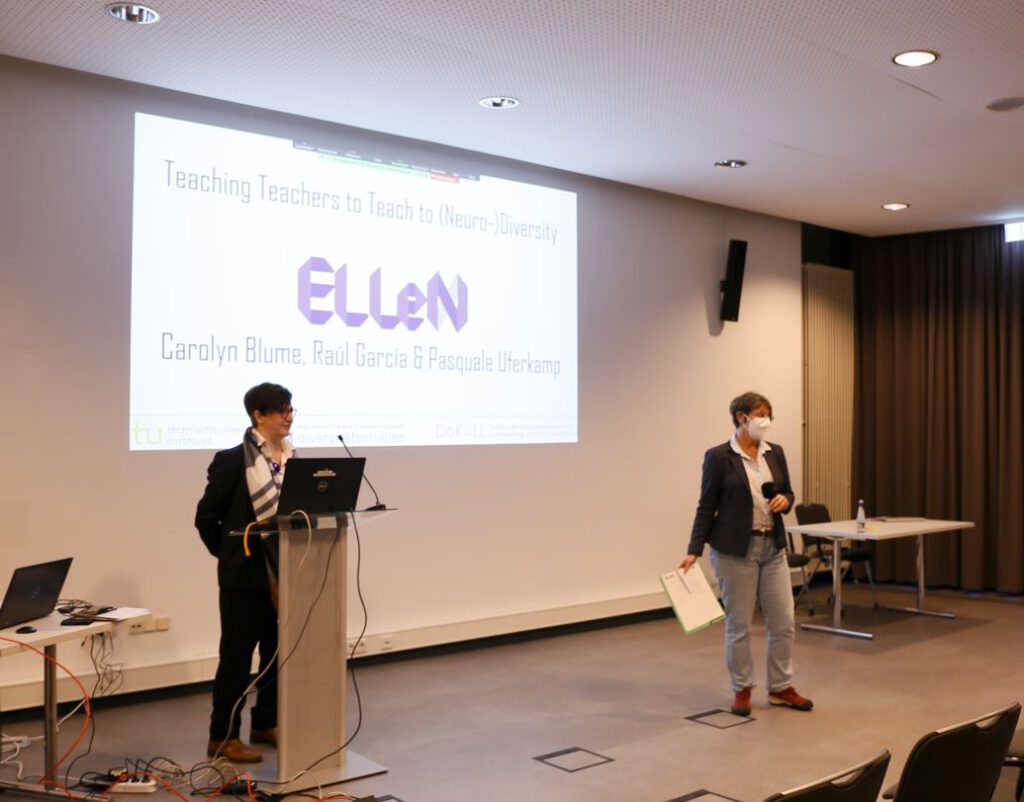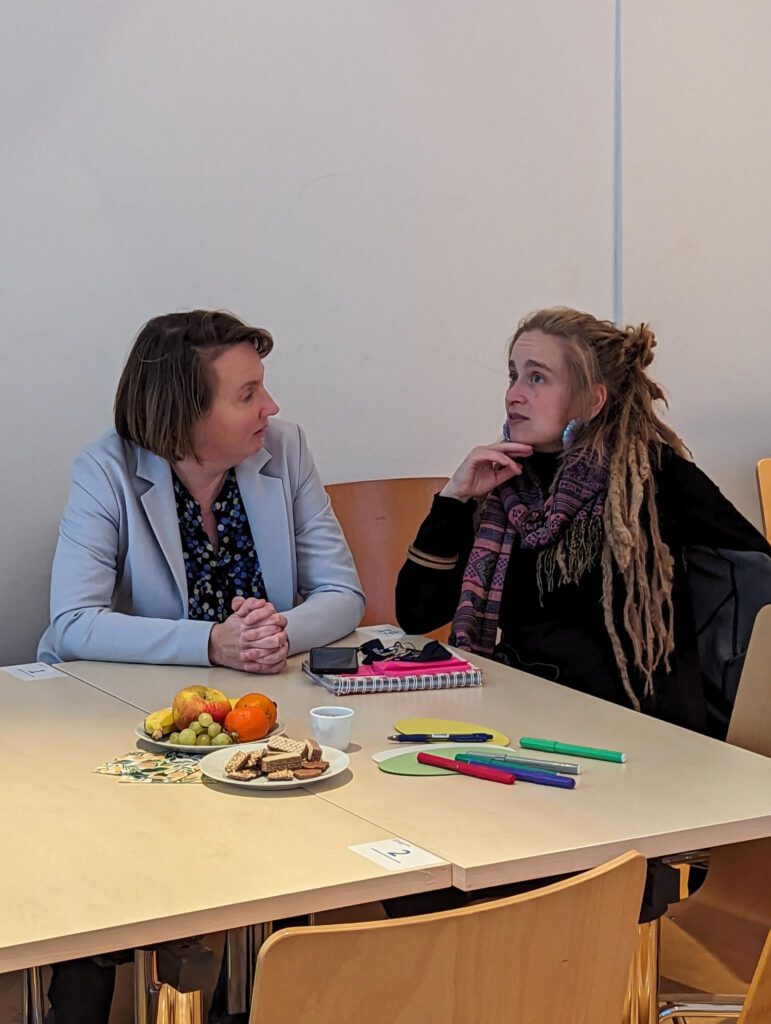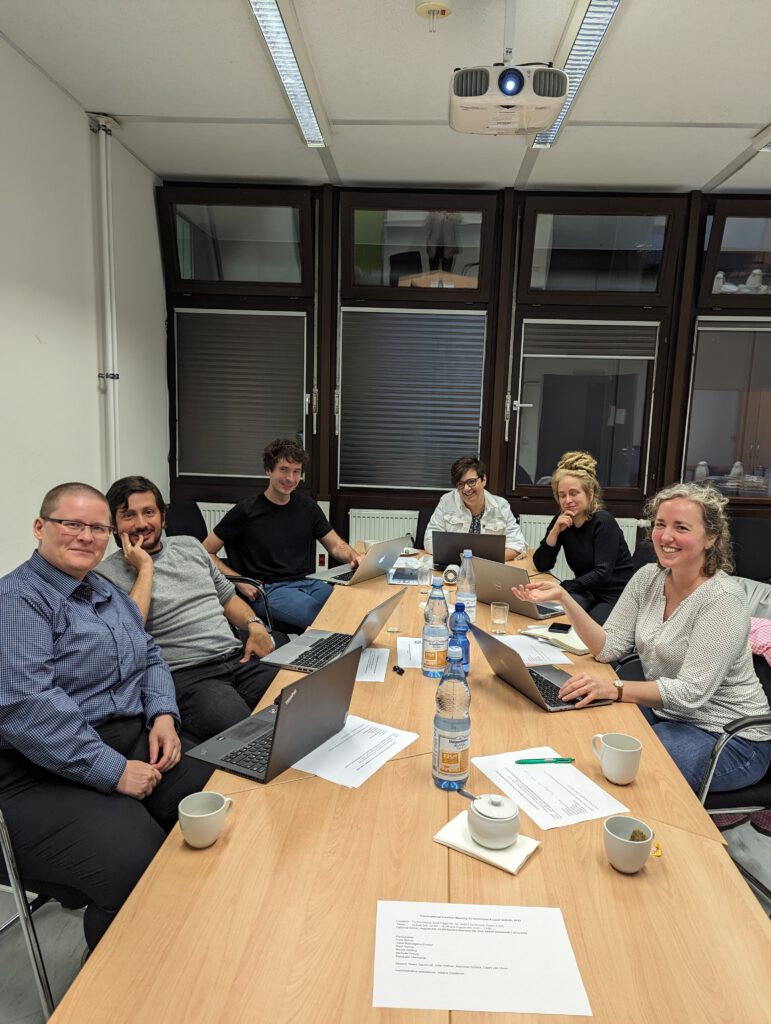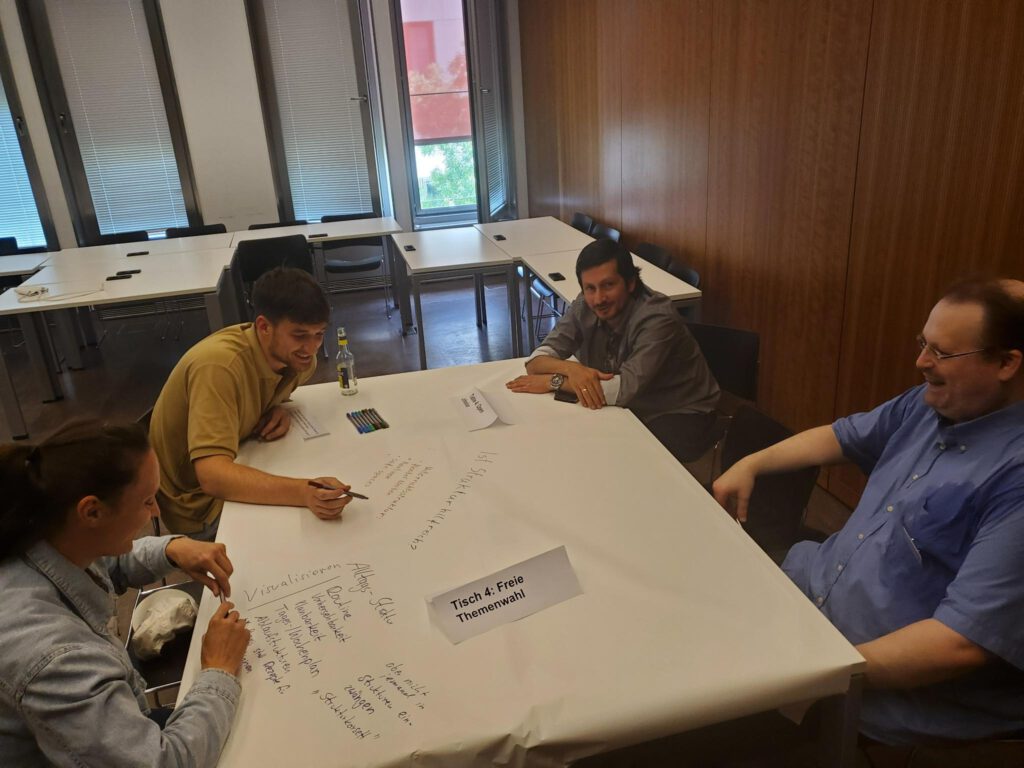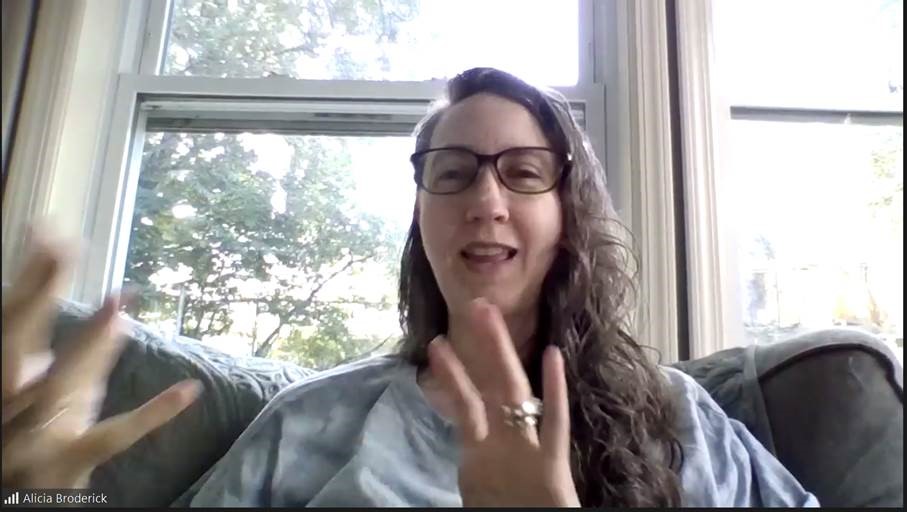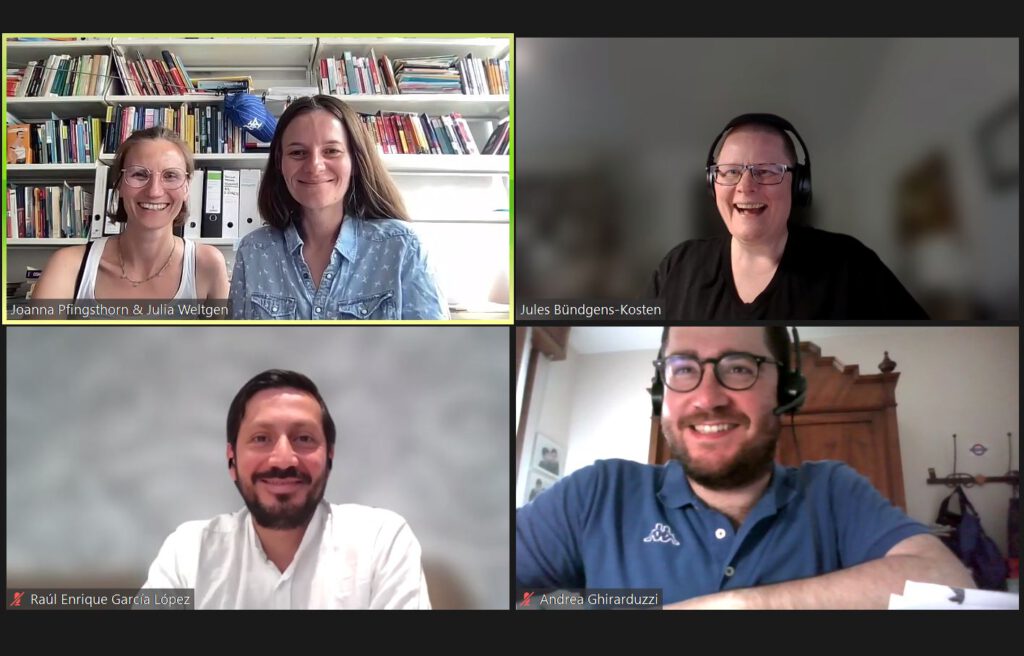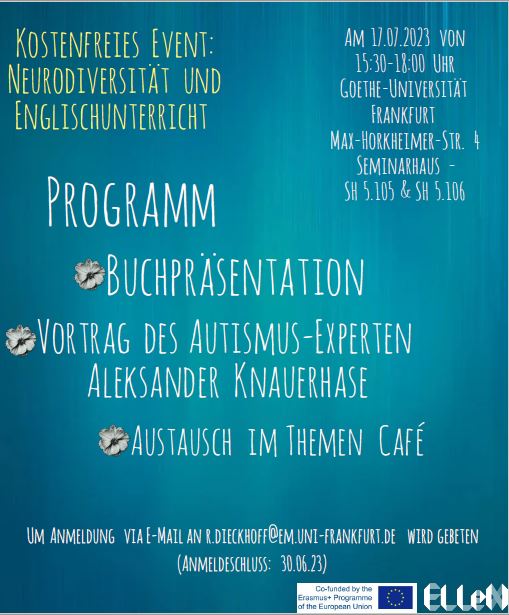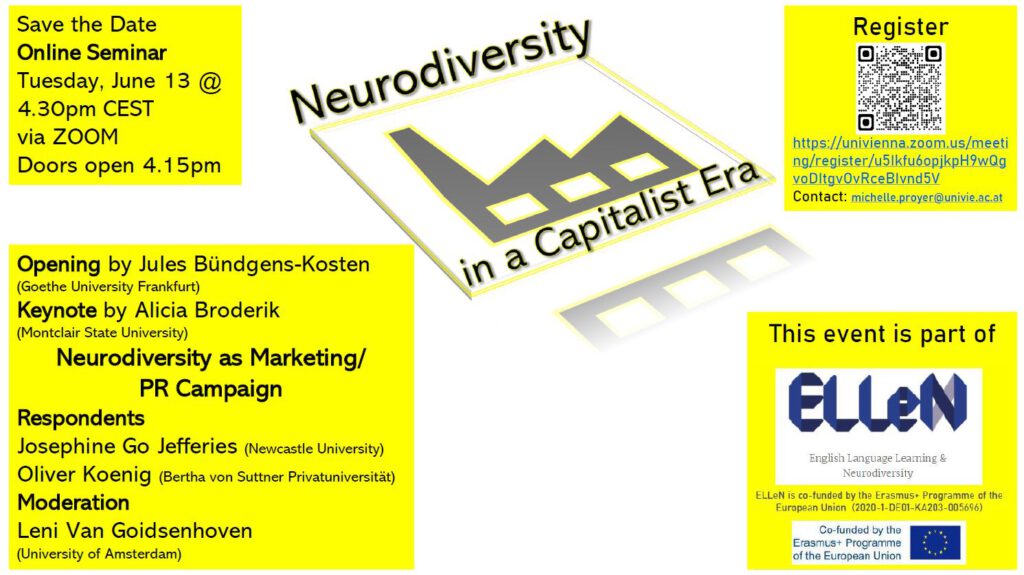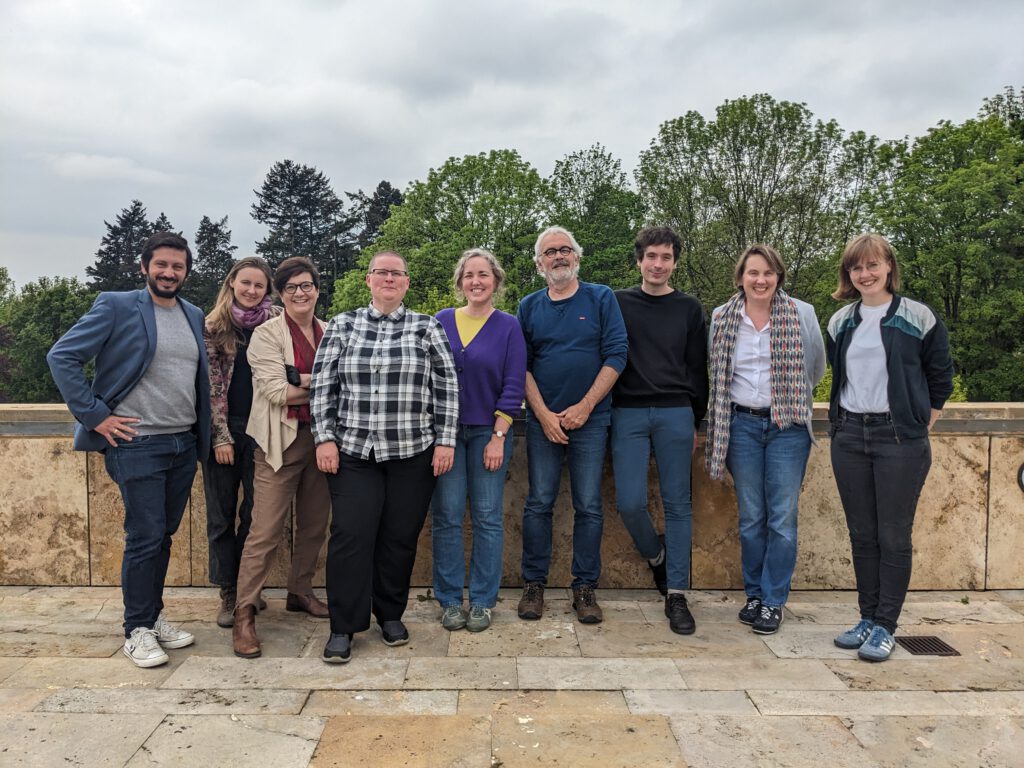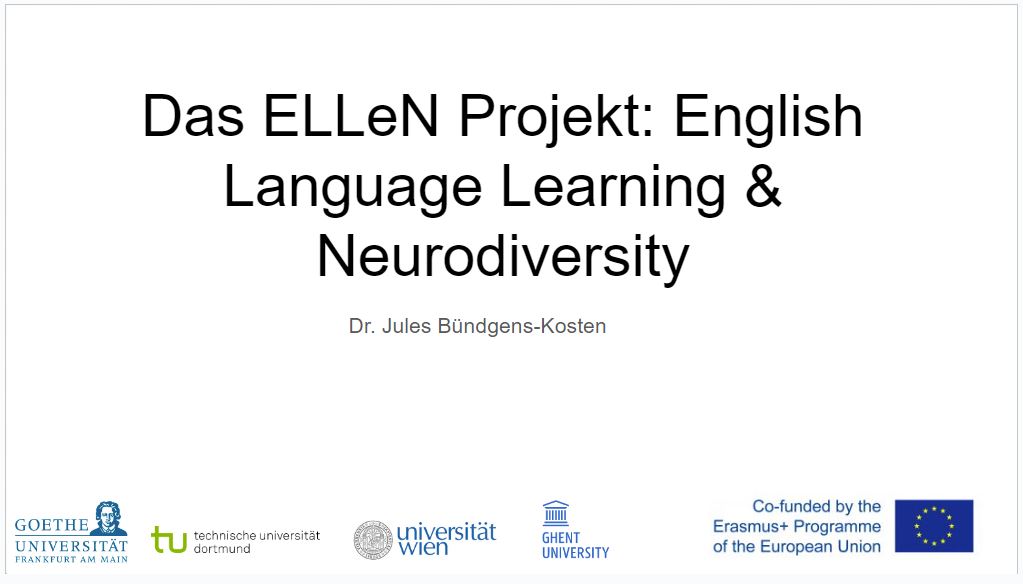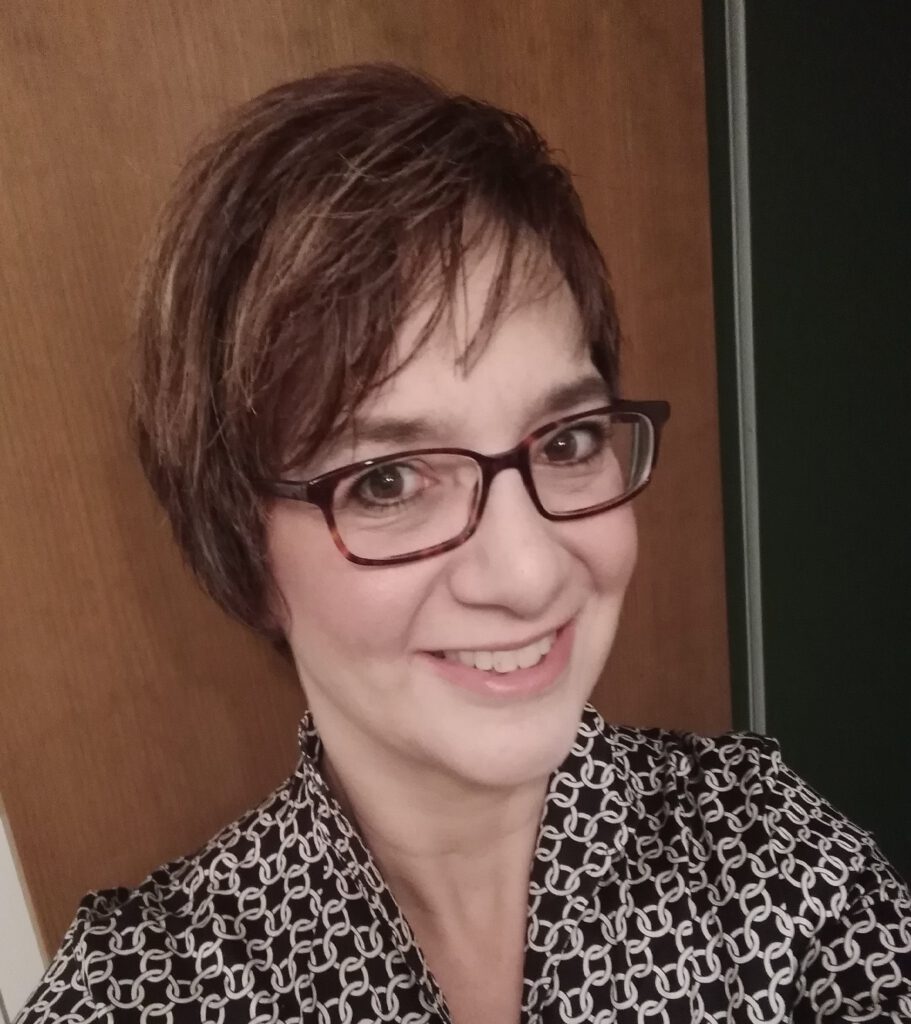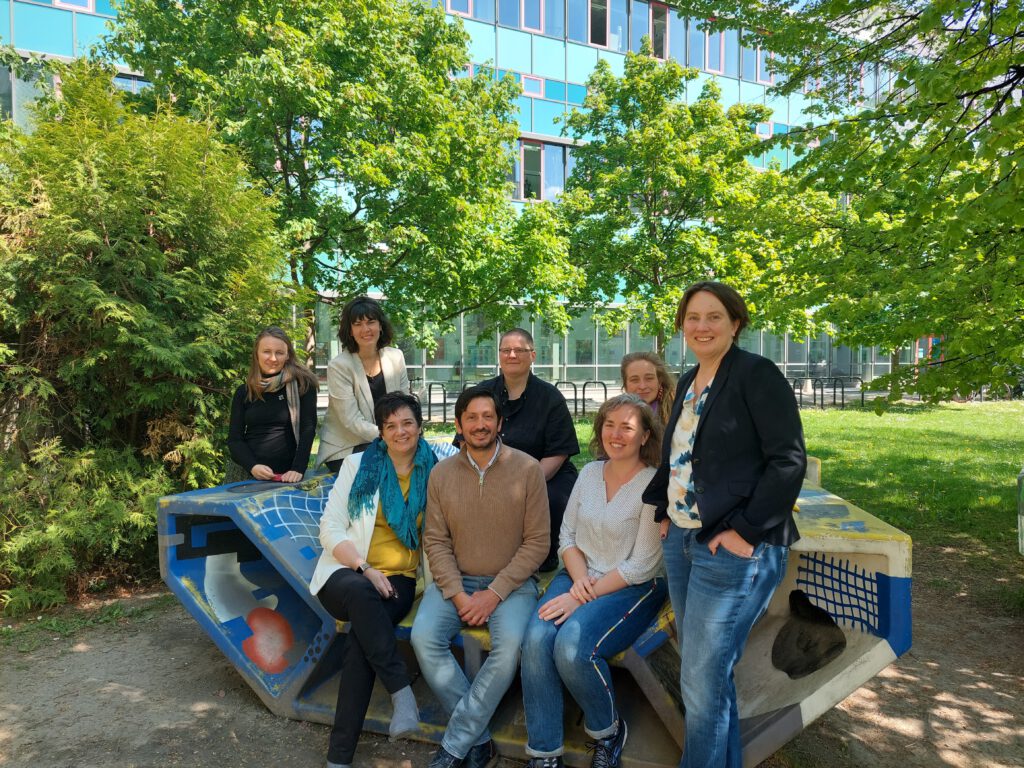Within the ELLeN project, teacher education students interviewed neurodivergent language learners and stakeholders in inclusive education. A selection of their interviews has now been published in book form! The book is called “Expert*innen in eigener Sache: Gespräche über Englischunterricht und Neurodiversität” [Experts by experience: Conversations about English language teaching and neurodiversity”] and is available from the publisher or any bookstore as a printed book and ebook. Furthermore, an open access version of the manuscript is available from the project website. This version of the manuscript has been published under a creative commons licence to make re-use for different teacher education settings as easy as possible.
Even though the book has a German title, it is multilingual: It encompasses English and German interviews, plus summaries in English, German and Flemish. The printed book contains a German-language introduction, but translations in other languages are available from the website (English foreword and Flemish foreword).
Interested in the decisions we’ve made preparing the manuscript? More information is available from this short report.
